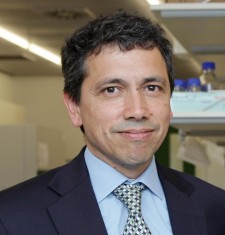
- Predicting the risk of relapse to modify chemotherapy treatment
Professor Tariq Enver is a world-leader in the field of leukaemic stem cell research. He is collaborating with clinician colleagues from Great Ormond Street Hospital, UCLH, Bristol Royal Hospital for Children and Oxford Children’s Hospital to take forward this important work.The main aim of this project is to develop new treatments for childhood ALL, particularly for the group of high-risk children with resistant disease. Equally important, it may enable us to better define the large number of children who are currently being over-treated and allow for treatment reduction.
Acute lymphoblastic leukaemia (ALL) is the most common form of childhood cancer, with around 400 children diagnosed every year in the UK. Although the survival rate for childhood ALL has now reached around 90%, this has only been achieved with the most intensive and thus most toxic treatment protocol of almost any other childhood cancer. The intensive treatment aims to prevent return of the disease (relapse) however it is thought that at least 50% of children are over-treated, that they could be cured with less intensive therapy.
Professor Enver and colleagues have identified a rare cell (the ‘stem/B cell’) present in children with ALL but absent from unaffected children. These stem cells have unique biological properties and are suspected to be responsible for disease relapse.
During this project the team will measure the stem cells at different points during treatment to see whether a relatively high level of these cells can predict relapse. If this work is successful, it should in the future be possible to reduce the intensity of therapy for half of all children who undergo treatment for ALL. Conversely, by intensifying therapy for those children most at risk it should be possible to reduce their relapse risk.
